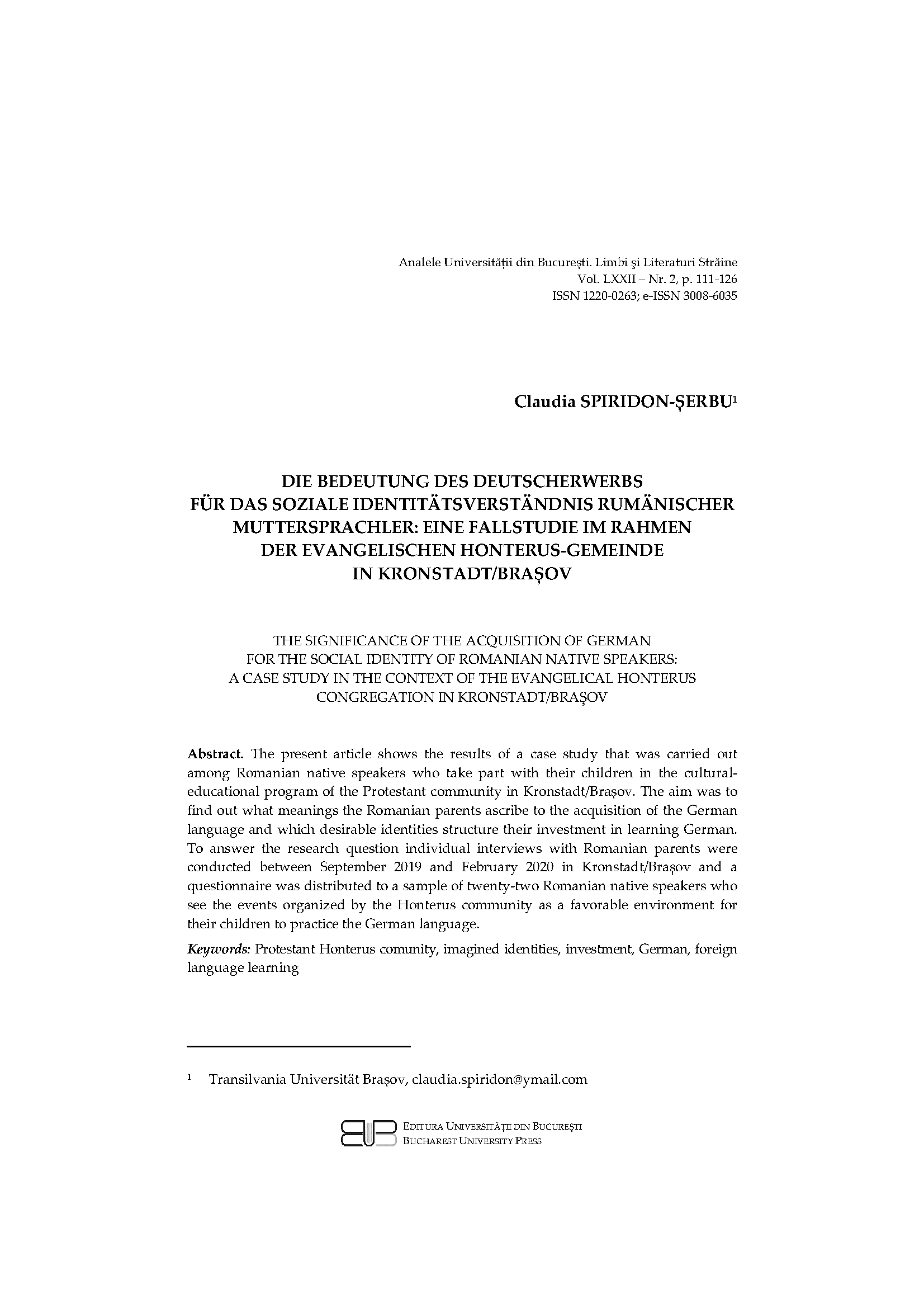DIE BEDEUTUNG DES DEUTSCHERWERBS FÜR DAS SOZIALE IDENTITÄTSVERSTÄNDNIS RUMÄNISCHER MUTTERSPRACHLER: EINE FALLSTUDIE IM RAHMEN DER EVANGELISCHEN HONTERUS-GEMEINDE IN KRONSTADT/BRAȘOV
DOI:
https://doi.org/10.62229/aubllslxxii/2_23/7Cuvinte cheie:
Protestant Honterus comunity, imagined identities, investment, German, foreign language learning 1Rezumat
The present article shows the results of a case study that was carried out among Romanian native speakers who take part with their children in the culturaleducational program of the Protestant community in Kronstadt/Brașov. The aim was to find out what meanings the Romanian parents ascribe to the acquisition of the German language and which desirable identities structure their investment in learning German. To answer the research question individual interviews with Romanian parents were conducted between September 2019 and February 2020 in Kronstadt/Brașov and a questionnaire was distributed to a sample of twenty-two Romanian native speakers who see the events organized by the Honterus community as a favorable environment for their children to practice the German language.




